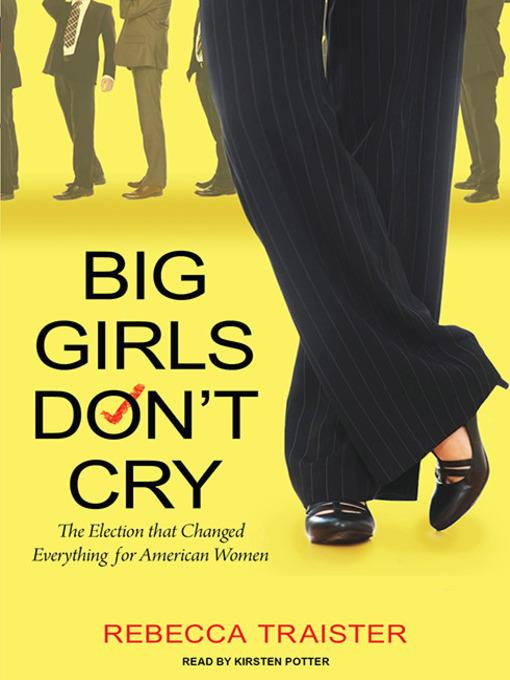
Big Girls Don't Cry
The Election that Changed Everything for American Women
فرمت کتاب
audiobook
تاریخ انتشار
2010
نویسنده
Kirsten Potterناشر
Tantor Media, Inc.شابک
9781400188000
کتاب های مرتبط
- اطلاعات
- نقد و بررسی
- دیدگاه کاربران
نقد و بررسی

Traister's nuanced analysis of gender politics in the 2008 election is handled superbly by narrator Kirsten Potter. Given the nearly two-year presidential campaign, there are ample sound bites that could have been over-embellished. But Potter maintains a solid presentation, providing inflection and tone but not outright impersonations of the wide pool of candidates. Her pacing and emphasis throughout the more detailed passages also make listening highly enjoyable. Traister's research is extensive and filled with an array of quotes from new and traditional media. Her skill at teasing out recurring misogynistic themes and rhetoric will change many listeners' views of the election regardless of whom they voted for. L.E. (c) AudioFile 2010, Portland, Maine

June 28, 2010
Who would have figured that the women who would benefit most from the 2008 presidential campaign would be the comediennes? Sarah Palin and Hillary Clinton may have lost in their respective campaigns, but Amy Poehler and Tina Fey both gained in cultural stature for their biting imitations. According to Traister, staff writer at Salon.com, the rollercoaster ride of 2008 exposed an entrenched chauvinism in the media and a lesson for anyone who might assume that a female candidate would hold a monopoly on women's votes. The author bludgeons conventional political wisdom by trenchantly exposing Palin's strange triangulation of mainstream feminism, Clinton's need to appear vulnerable in order to appeal to women, and the precarious position of black women—some of whom were conflicted between supporting candidates who mirrored their gender or their race. Rising to the occasion, however, were women in the media, from Katie Couric, who—depending on your perspective—ruined or sainted Sarah Palin, to the sofa-bound political discourse of The View. Traister does a fine job in showing that progress does not proceed in straight lines, and, sometimes, it's the unlikeliest of individuals who initiate real change.

























دیدگاه کاربران